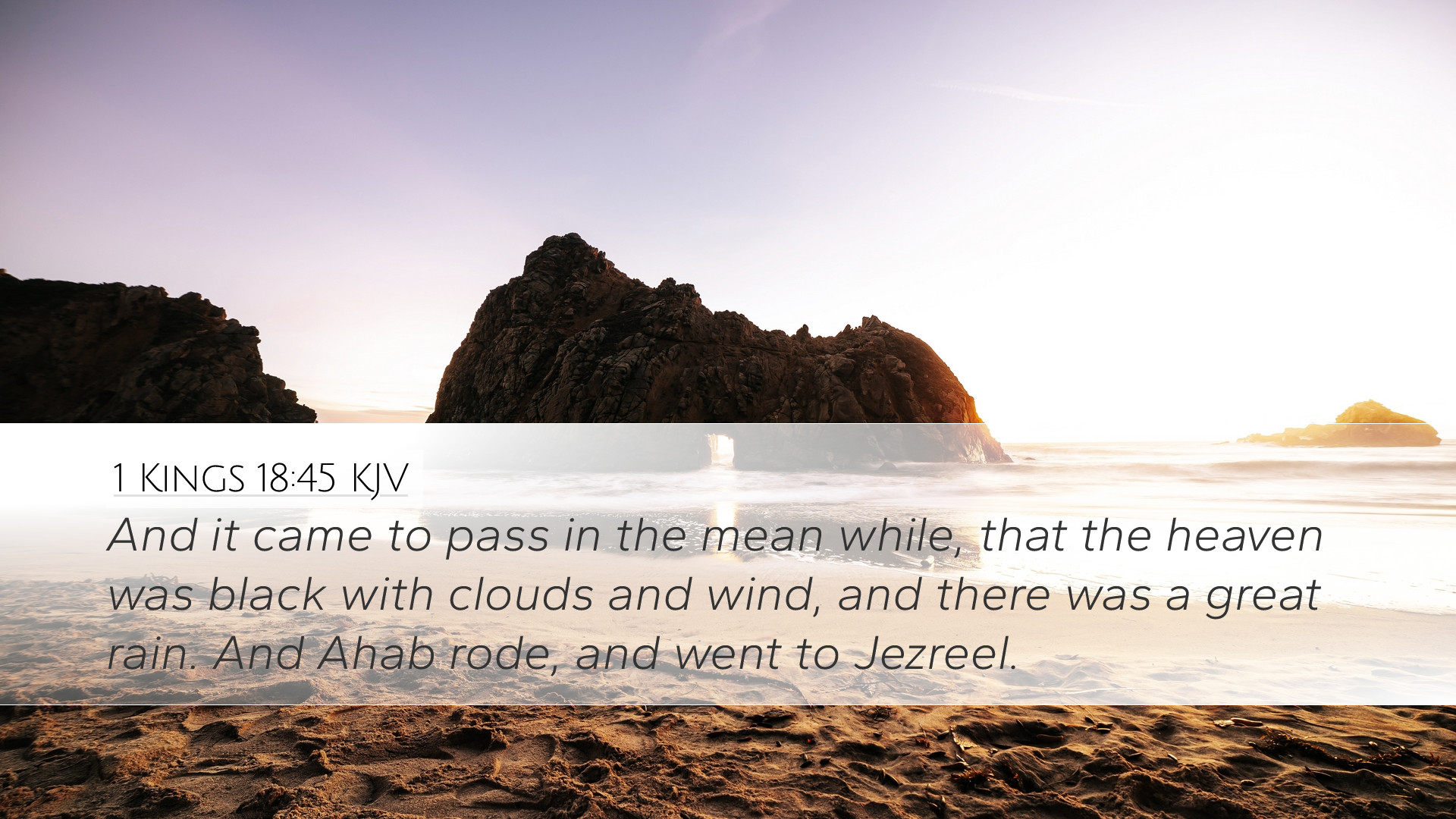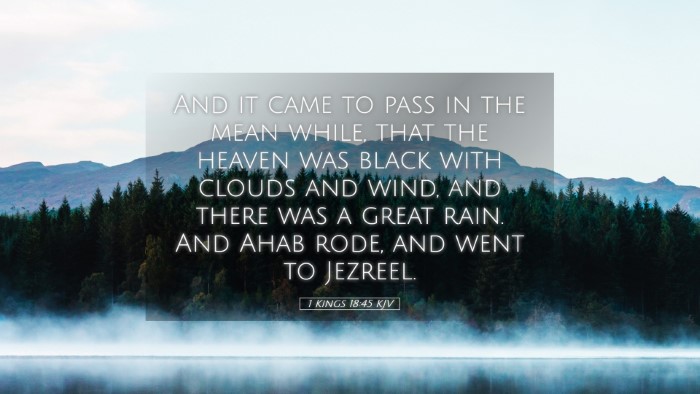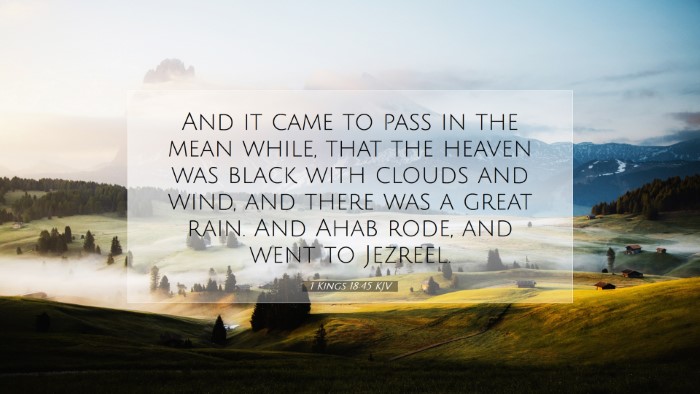Commentary on 1 Kings 18:45
Verse Context: 1 Kings 18:45 states, "And it came to pass in the mean while, that the heaven was black with clouds and wind, and there was a great rain. And Ahab rode, and went to Jezreel." This verse follows a momentous event in the life of the prophet Elijah and represents a significant turning point in Israel's history.
Historical and Theological Background
The backdrop of 1 Kings 18 involves the confrontation between Elijah, as God's prophet, and the prophets of Baal. This chapter is crucial in demonstrating God's sovereignty and power over false gods. The culmination of this confrontation is the rain, symbolizing God's blessing and favor after a prolonged drought, which had been a divine judgment against Israel's idolatry.
Insights from Public Domain Commentaries
This section synthesizes insights from noted commentaries to derive a comprehensive understanding of 1 Kings 18:45.
Matthew Henry's Commentary
Matthew Henry emphasizes the significance of the timing of rain in relation to the cessation of the drought. He notes:
- Divine Orchestration: The arrival of rain was a direct response to Elijah's fervent prayers (James 5:17-18), illustrating the power of intercessory prayer.
- Symbol of God's Mercy: The rain represented not only the end of physical drought but also the restoration of spiritual vitality among the people of Israel, inviting them back to covenant faithfulness.
- Contrast with Baal: Unlike the prophets of Baal who could not produce rain, God's response shows His supremacy and the ineffectiveness of idol worship.
Albert Barnes' Notes on the Bible
Albert Barnes elaborates on the meteorological phenomena described in verse 45 and the historical implications:
- Symbolic Meteorology: The dramatic change in weather serves as a metaphor for spiritual renewal; the black clouds mingling with the wind echoed the restoration of God's relationship with His people.
- Ahab's Departure: Ahab riding to Jezreel signifies a transition from despair to hope, as he is finally permitted to witness God’s deliverance.
- Nature as a Witness: The earth’s response through rain is a theme throughout Scripture, showing that creation itself waits for redemption (Romans 8:19-22).
Adam Clarke's Commentary
Adam Clarke provides a more detailed examination of the sequence of events:
- Elijah's Perseverance: Clarke points out Elijah’s unwavering faith throughout the drought and his confidence that God would fulfill His promise of rain.
- Spiritual Lessons: The text illustrates that even leaders such as Ahab were subject to the reign of God’s providence, which brings humility to both the rulers and the ruled.
- Prophetic Authority: Elijah's role as a prophet culminates not only in declarations of judgment but in declarations of God’s grace and renewal.
Thematic Reflections
The events surrounding 1 Kings 18:45 present several theological themes worthy of exploration:
- Prayer and Faithfulness: This passage succinctly illustrates the power of prayer and persistent faith in God’s promises, serving as an encouragement to believers.
- Judgment and Mercy: The ending of drought symbolizes God's mercy after judgment, reminding us of the hope inherent in repentance.
- Physical and Spiritual Realities: The connection between spiritual realities and physical manifestations (such as rain) reinforces the holistic nature of God's creative order.
Practical Applications for Pastoral and Scholarly Reflections
This exploration of 1 Kings 18:45 can serve pastoral ministries and theological discussions in several ways:
- Encouragement in Prayer: Pastors can use this text to inspire congregants about the transformative power of prayer, especially in times of difficulty.
- Emphasizing God’s Sovereignty: The assurance of God's control over nature can challenge and strengthen the faith of those in turbulent times.
- Spiritual Renewal: Scholars can delve into the implications of spiritual drought and renewal, drawing parallels with contemporary spiritual crises.
Conclusion
In summary, 1 Kings 18:45 is much more than an account of meteorological change; it is a profound revelation of God's character, a testament to the power of prayer, and an invitation towards spiritual renewal. Engaging with this text through the insights offered by Matthew Henry, Albert Barnes, and Adam Clarke, we can grasp the depth of its implications for faith, practice, and understanding of God's unceasing relationship with His creation.


